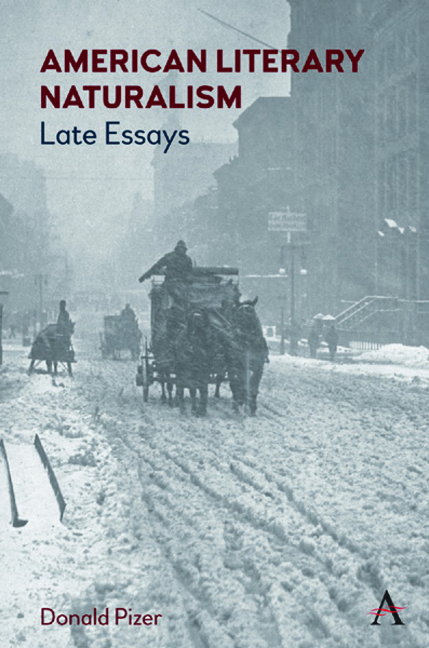2 - Critical Conceptions of American Realism and Naturalism, 1870– 1970
Published online by Cambridge University Press: 22 February 2022
Summary
Anyone seeking to write about American literature between the Civil War and World War I in relation to the literary movements known as realism and naturalism faces a twofold initial difficulty. First, there exists a traditional suspicion, often arising from the very attempt to write literary history, of large-scale classifying rubrics. Is there any advantage, one might ask, in conceptualizing the richly diverse expression of this period in terms of such inherent simplifications as realism and naturalism? A second problem derives from the recent theorizing of literary study. The attraction, for many theorists, of a deconstructive stance has bred skepticism toward interpretive enterprises that posit such communities of belief and expression as those subsumed under the headings of realism and naturalism. And, from a somewhat different theoretical viewpoint, recent scholars of a New Historicist bent have tended to discount traditional historical divisions in the study of American literature on the ground that they obscure underlying ideological similarities present in all American writing since the Civil War.
Yet the effort to describe and understand a historical phase of American writing in terms of major shared characteristics of that writing continues. At its deepest and probably most significant level of implication, this attempt derives from the same reservoir of humanistic faith which feeds the act of creative expression itself. The artist, putting pen to paper, is expressing a belief in the human capacity to overcome such obstacles to understanding as the existence in all communication acts of unconscious motive and value in both writer and reader, the inherent ambiguity of the symbolic expression which is language, and the often heartbreaking distinction in human utterance between intent and effect. He or she does so, despite these difficulties, because of faith in the value of striving to create threads of shared experience and meaning out of the inchoate mix of life. The literary historian, in his or her own way, also functions within this charged field of doubt and faith. Indeed, the literary historian can profit from the increased appreciation in recent decades of the difficulties inherent in the effort to interpret. An awareness of the hazards and complexities of textual and historical analysis can lead, not to abandonment of the attempt to understand the past, but rather to a refining of that undertaking.
- Type
- Chapter
- Information
- American Literary NaturalismLate Essays, pp. 17 - 32Publisher: Anthem PressPrint publication year: 2020



